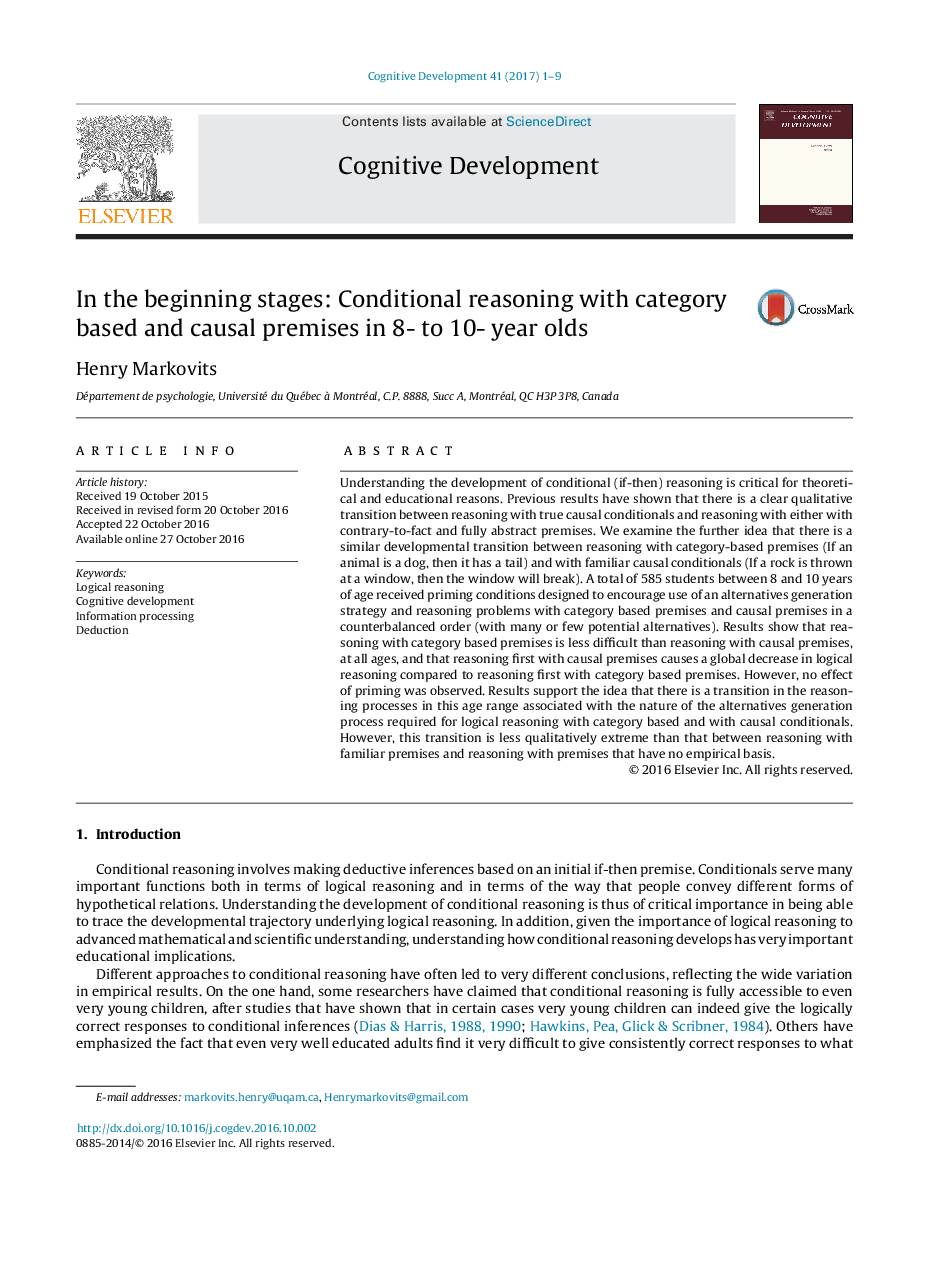| Article ID | Journal | Published Year | Pages | File Type |
|---|---|---|---|---|
| 5039637 | Cognitive Development | 2017 | 9 Pages |
â¢Studied reasoning with category-based and causal conditionals in 8 to 10-year olds.â¢Developmental increase in both kinds of reasoning was observed.â¢Category-based premises led to higher rates of logical reasoning than causals.â¢Reasoning first with causal premises decreased levels of logical reasoning.
Understanding the development of conditional (if-then) reasoning is critical for theoretical and educational reasons. Previous results have shown that there is a clear qualitative transition between reasoning with true causal conditionals and reasoning with either with contrary-to-fact and fully abstract premises. We examine the further idea that there is a similar developmental transition between reasoning with category-based premises (If an animal is a dog, then it has a tail) and with familiar causal conditionals (If a rock is thrown at a window, then the window will break). A total of 585 students between 8 and 10 years of age received priming conditions designed to encourage use of an alternatives generation strategy and reasoning problems with category based premises and causal premises in a counterbalanced order (with many or few potential alternatives). Results show that reasoning with category based premises is less difficult than reasoning with causal premises, at all ages, and that reasoning first with causal premises causes a global decrease in logical reasoning compared to reasoning first with category based premises. However, no effect of priming was observed. Results support the idea that there is a transition in the reasoning processes in this age range associated with the nature of the alternatives generation process required for logical reasoning with category based and with causal conditionals. However, this transition is less qualitatively extreme than that between reasoning with familiar premises and reasoning with premises that have no empirical basis.
